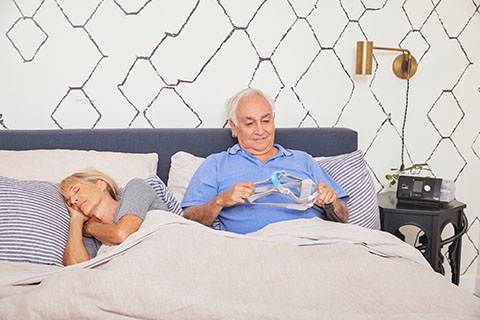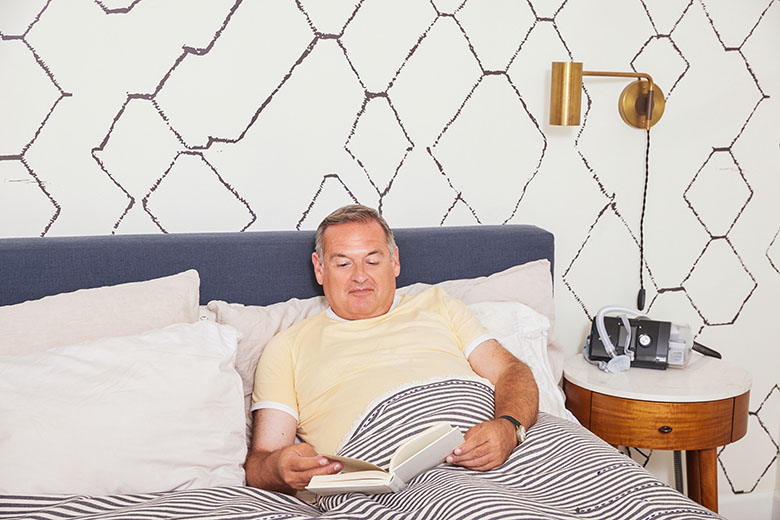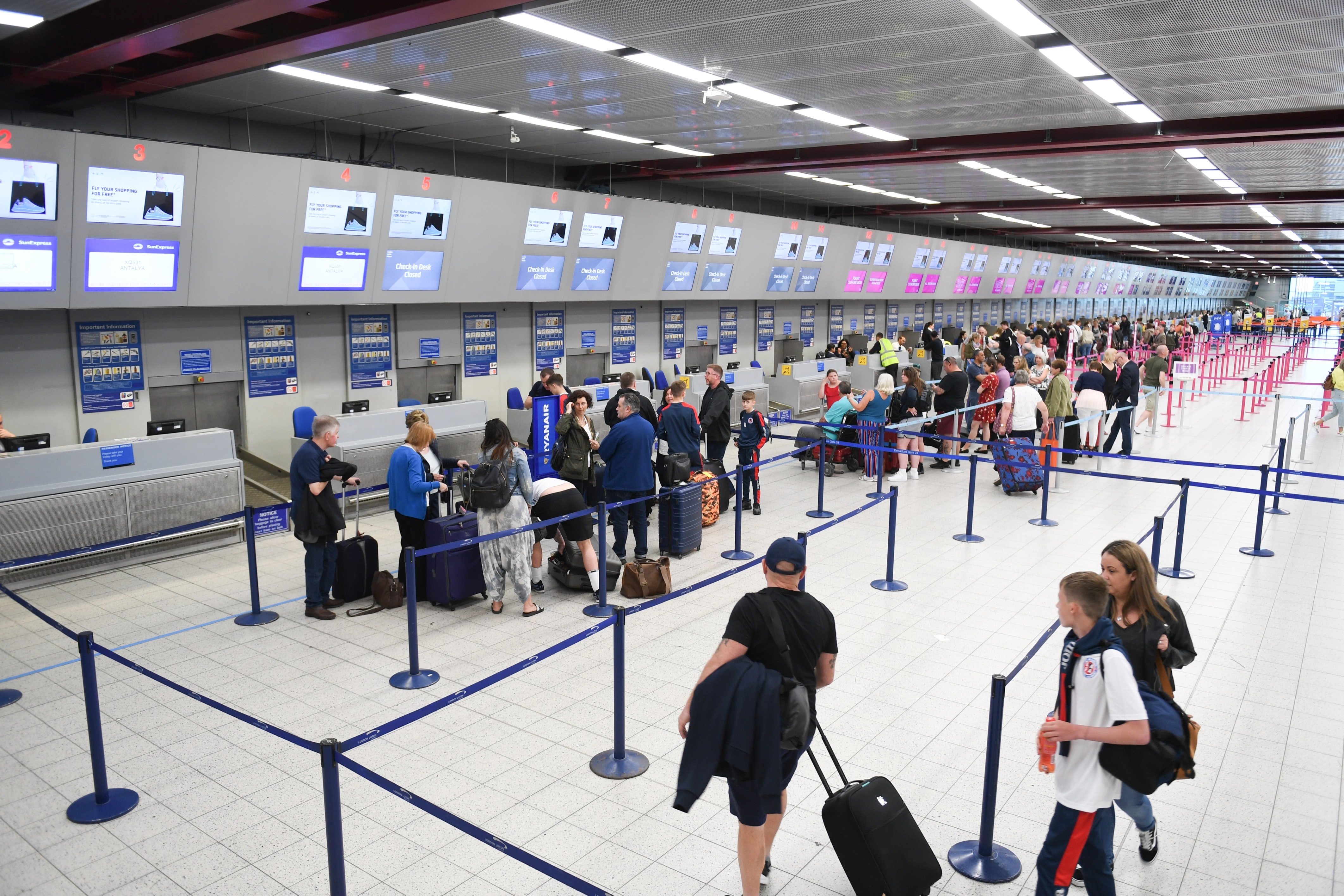OSA is about as common in the United States as asthma, affecting 22 million adults nationwide.
The benefits of a good night's sleep can't be overstated enough. The health implications of OSA on your body can be profound, as it can prevent your body from getting adequate oxygen during the night. Over time, this can negatively impact your weight, memory, and contribute to heart disease and the onset of diabetes.Fortunately, there are ways to minimize the effects of OSA on your body. For instance, knowing what sleep position is best for sleep apnea can help you stay asleep and steady your breathing throughout the night.
What is the best sleeping position for sleep apnea?
Breathing while lying down is different from when you are standing up. When you are upright, air flows more easily into your body, and your lungs have an easier time expanding. Lying down to sleep forces your body to fight against gravity as you try to breathe throughout the night. The good news is that certain sleep positions make it easier to breathe.
If you tend to sleep on your back, you may want to consider a new position. This is the worst position to be in if you have sleep apnea. That is because when you are on your back, your tongue and the soft tissue in your mouth relax and can block your airways during the night. On the other hand, sleeping on your stomach is better because it produces the opposite effect, pulling the soft tissue away from the airways and keeping them open.
If you are a side sleeper, you are already a step ahead. Sleeping on your side is optimal, as it stabilizes your airways and promotes blood flow. While it can take some getting used to, training your body to adjust to side sleeping is the best sleep position for sleep apnea sufferers.
More tips for managing sleep apnea
Besides making sure you are sleeping in an optimal position, try these other best practices to help improve your sleep:
- Set a schedule where you go to bed and wake at consistent times.
- Do not nap for more than 45 minutes during the day.
- Restrict your alcohol consumption, especially a few hours before going to sleep.
- Avoid caffeine and sugary foods before bedtime.
- Incorporate regular exercise into your daily routine.
- Keep your bedroom adequately ventilated and at a comfortable temperature.
- Block out all distracting noises and eliminate as much light as possible.
- Refrain from looking at your phone directly before going to sleep.
- Talk to your practitioner about trying CPAP (continuous positive airway pressure) therapy to help keep your airways open while you sleep.
Is sleep therapy right for you?
If you are experiencing the effects of sleep apnea or your bed partner has complained about your snoring, talk to your practitioner about potential treatment options. CPAP is a well-established sleep therapy that delivers pressurized air through a face mask to help keep your airways open and prevent apnea episodes.
Our team of experts can work with your practitioner and you to help with sleep therapy options that will work best for your condition and lifestyle. Our sleep therapy program includes:
- Home sleep testing: Get tested for sleep apnea from the comfort of home.
- Training and education: We will teach how to use and care for your CPAP and BiPAP machines.
- 24/7 service: Our clinical team can work around your schedule and lifestyle.
At Lincare, our goal is to improve your quality of life by helping you regain control of your sleeping. Your safety, comfort, and success are our greatest priority. Talk to your practitioner about your sleep needs and how you can best control your sleep apnea.



